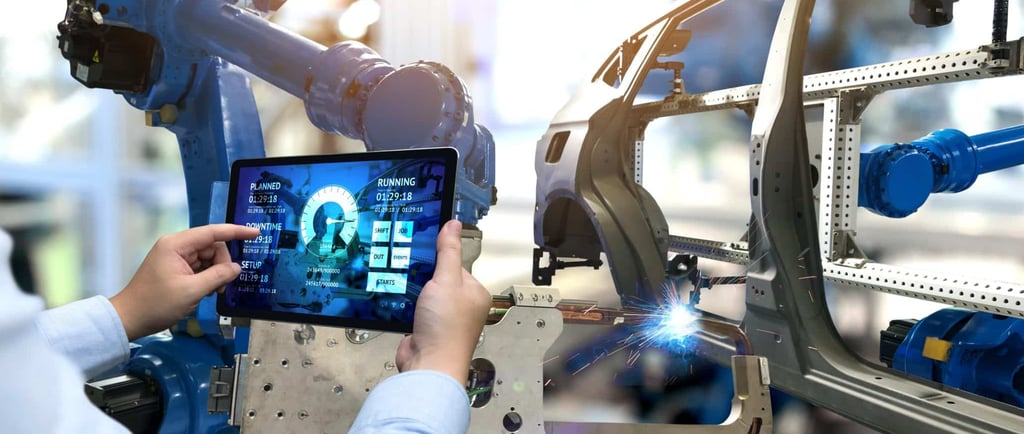Kaydence partners with the CSH to drive innovative solutions in education and healthcare.
Mechanical Engineering Degree: Designing the Future
A Mechanical Engineering degree provides a strong foundation in designing, analyzing, and manufacturing mechanical systems that power modern industries. This program covers key subjects such as thermodynamics, fluid mechanics, materials science, robotics, and machine design, equipping students with problem-solving skills and technical expertise. Mechanical engineers play a crucial role in automotive, aerospace, energy, robotics, healthcare, and manufacturing industries, contributing to innovations in sustainable energy, smart technology, and advanced machinery. With opportunities in research, development, design, and management, a mechanical engineering degree opens doors to diverse and rewarding career paths, from creating cutting-edge products to leading large-scale engineering projects.
EDUCATION AND LEARNING
2/14/20251 min read


What Is a Mechanical Engineering Degree?
A mechanical engineering degree is a program that teaches students the principles of designing, developing, testing, and manufacturing mechanical systems and devices. It covers topics such as thermodynamics, fluid mechanics, materials science, robotics, and machine design. Mechanical engineers apply physics and mathematics to solve real-world engineering problems, from designing cars and aircraft to developing renewable energy systems and medical devices.
What Can You Do With a Mechanical Engineering Degree?
A mechanical engineering degree opens up diverse career opportunities in various industries, including automotive, aerospace, energy, manufacturing, healthcare, and robotics. Here are some common career paths:
1. Core Engineering Roles
Mechanical Engineer – Design and develop mechanical systems and devices.
Aerospace Engineer – Work on aircraft, spacecraft, and defense systems.
Automotive Engineer – Design and test vehicles and their components.
Energy Engineer – Develop sustainable energy solutions like wind turbines and solar panels.
Manufacturing Engineer – Improve production processes and automation.
2. Specialized Engineering Fields
Robotics Engineer – Design and build intelligent robotic systems.
Biomedical Engineer – Develop medical devices and prosthetics.
Mechatronics Engineer – Integrate mechanical, electrical, and computer systems.
HVAC Engineer – Design heating, ventilation, and air conditioning systems.
3. Research & Development (R&D)
Work in labs or universities to develop innovative technologies.
Conduct experiments and simulations to improve engineering processes.
4. Management & Consulting
Project Manager – Oversee engineering projects from planning to execution.
Consulting Engineer – Provide expert advice on mechanical design and manufacturing.
Quality Control Engineer – Ensure products meet industry standards.
5. Non-Traditional Careers
Data Analyst – Use engineering problem-solving skills in big data analysis.
Patent Examiner – Assess new mechanical inventions for patents.
Technical Sales Engineer – Work in sales and marketing of engineering products.
Engineering Lecturer – Teach mechanical engineering at universities.
Conclusion
A mechanical engineering degree is highly versatile, offering opportunities in traditional engineering roles and emerging fields like robotics, renewable energy, and artificial intelligence. Whether you want to design advanced machines, develop sustainable technologies, or lead engineering projects, this degree provides the foundation to pursue a rewarding career.
Kaydence Consultancy
Global platform for study abroad solutions, marketing strategy and your efficient research partner
Contact
Get in touch
director@kaydenceconsultancy.com
+9188916082
© 2025 Kaydence Consultancy. All rights reserved.
Designed with care | Powered by Innovation
Navigation
Company
Career
Legal
M G Road, Kochi, Kerala, India
